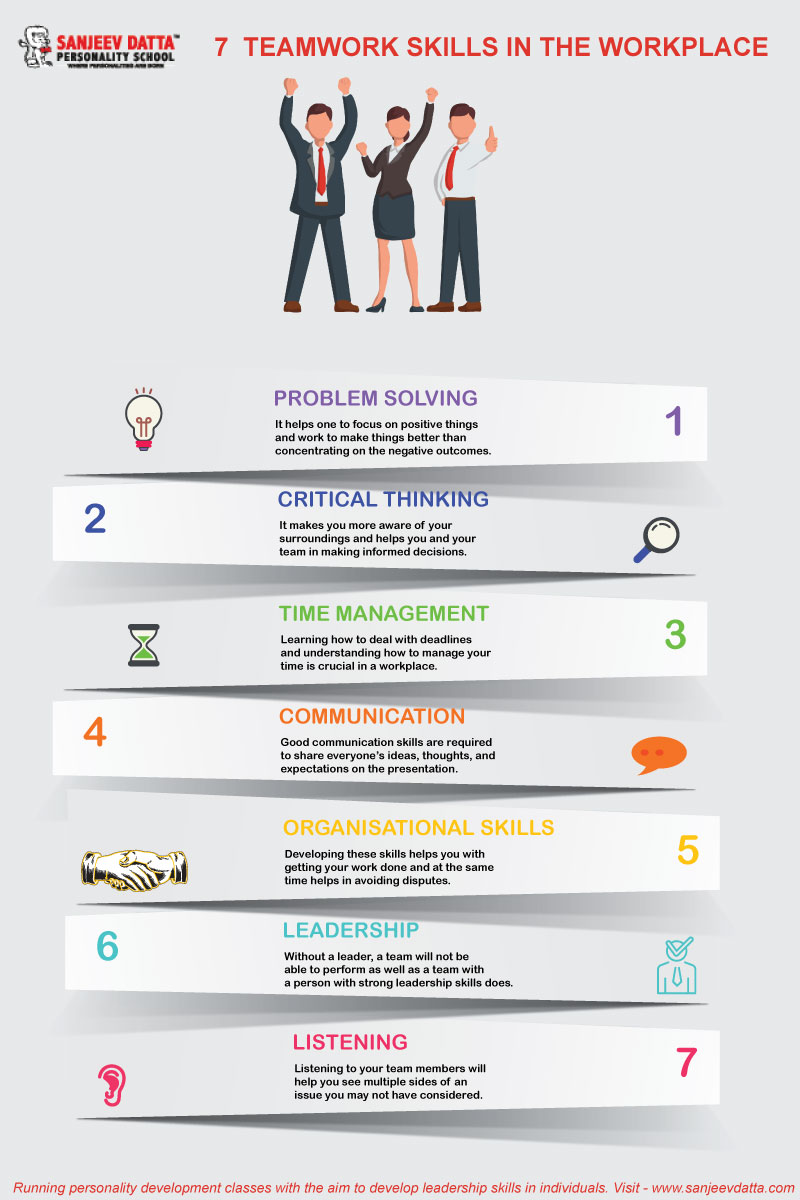In today’s dynamic work environment, advocating for yourself in the workplace is crucial to achieving career success and personal fulfillment. This skill encompasses various strategies and actions that ensure your voice is heard, your contributions are recognized, and your career progresses in the direction you desire. However, many employees find self-advocacy challenging due to fear of conflict, lack of confidence, or uncertainty about the best approach. This comprehensive guide will explore how to advocate for yourself in the workplace, providing actionable advice and insights to empower you to take charge of your professional journey.
The Importance of Self-Advocacy in the Workplace
Self-advocacy is about more than just asking for what you want; it’s about knowing your worth, understanding your rights, and effectively communicating your needs and desires. When you advocate for yourself, you take an active role in shaping your career path and ensuring that your contributions are valued and recognized. This proactive approach can lead to increased job satisfaction, better work-life balance, and enhanced career opportunities.
Understanding Self-Advocacy

Self-advocacy involves recognizing your value, communicating your needs and accomplishments, and standing up for your rights and interests. It requires a combination of self-awareness, communication skills, and strategic thinking. Let’s break down these components:
- Self-Awareness: Understanding your strengths, weaknesses, achievements, and goals.
- Communication Skills: Effectively conveying your thoughts, needs, and accomplishments to others.
- Strategic Thinking: Planning your approach and choosing the right moments and methods to advocate for yourself.
Visit: tips for clear and confident expression
Steps to Advocate for Yourself in the Workplace

1. Build Self-Awareness
The foundation of effective self-advocacy is self-awareness. Knowing your strengths and achievements allows you to present a compelling case when advocating for yourself. Here are some ways to enhance your self-awareness:
- Self-Reflection: Regularly assess your skills, achievements, and areas for improvement. Keeping a journal can help you track your progress and articulate your accomplishments.
- Feedback: Seek constructive feedback from colleagues, supervisors, and mentors. Use this feedback to understand how others perceive your strengths and areas for growth.
- Strengths Assessment: Utilize tools like the Myers-Briggs Type Indicator (MBTI) or StrengthsFinder to gain insights into your personality and strengths.

2. Communicate Effectively
Effective communication is crucial for self-advocacy. It involves not only speaking up but also listening and engaging in meaningful dialogue. Here’s how you can enhance your communication skills:
- Be Clear and Concise: When advocating for yourself, be specific about what you want and why you deserve it. Avoid vague language and be prepared to provide examples and evidence of your achievements.
- Practice Active Listening: Engage in active listening to understand others’ perspectives and build rapport. This can help you tailor your message to resonate with your audience.
- Non-Verbal Communication: Pay attention to your body language, eye contact, and tone of voice. These non-verbal cues can significantly impact how your message is received.
3. Build a Strong Professional Network
A strong professional network can provide support, advice, and opportunities to advocate for yourself. Here’s how to build and leverage your network:
- Internal Networking: Build relationships with colleagues, supervisors, and other key stakeholders within your organization. Attend company events, join committees, and participate in team activities.
- External Networking: Connect with professionals in your industry through networking events, conferences, and social media platforms like LinkedIn. These connections can provide valuable insights and opportunities.
- Mentorship: Seek out mentors who can offer guidance, support, and advocacy on your behalf. A mentor can help you navigate challenges and identify opportunities for growth. Shine brighter in every room: enroll in our personality grooming classes and learn the secrets to commanding attention and respect effortlessly!
4. Document Your Achievements
Keeping a record of your accomplishments can provide evidence to support your self-advocacy efforts. Here’s how to effectively document your achievements:
- Achievement Log: Maintain a log of your accomplishments, including specific projects, tasks, and outcomes. Include quantitative data (e.g., sales numbers, project completion times) whenever possible.
- Performance Reviews: Use performance reviews as an opportunity to highlight your achievements and discuss your career goals. Prepare for these meetings by reviewing your achievement log and identifying key points to discuss.
- Portfolio: Create a portfolio showcasing your work, including reports, presentations, and other relevant materials. This can serve as tangible evidence of your skills and accomplishments.

5. Set Clear Goals and Priorities
Setting clear career goals and priorities can help you focus your self-advocacy efforts and measure your progress. Here’s how to set and achieve your goals:
- SMART Goals: Use the SMART criteria (Specific, Measurable, Achievable, Relevant, Time-bound) to set clear and actionable goals. For example, instead of saying “I want to advance in my career,” set a goal like “I want to be promoted to a senior position within the next two years.”
- Action Plan: Develop an action plan outlining the steps you need to take to achieve your goals. Break down your goals into smaller, manageable tasks and set deadlines for each step.
- Regular Review: Regularly review and adjust your goals and action plan based on your progress and changing circumstances. This ensures that you stay on track and remain focused on your objectives.
Visit: how to set goals for yourself
6. Learn to Negotiate
Negotiation skills are essential for advocating for yourself, whether you’re negotiating a raise, a promotion, or project responsibilities. Here’s how to become a more effective negotiator:
- Preparation: Prepare thoroughly for negotiations by researching industry standards, understanding your worth, and anticipating potential objections. The more prepared you are, the more confident you’ll feel.
- Win-Win Mindset: Approach negotiations with a win-win mindset, aiming to find solutions that benefit both you and the other party. This collaborative approach can lead to more successful outcomes.
- Practice: Practice your negotiation skills in low-stakes situations to build confidence and improve your techniques. Role-playing with a mentor or colleague can be a helpful exercise.
7. Stand Up for Your Rights
Advocating for yourself also involves standing up for your rights and ensuring that you’re treated fairly and with respect. Here’s how to assert your rights in the workplace:
- Know Your Rights: Familiarize yourself with your rights as an employee, including labor laws, company policies, and anti-discrimination regulations. This knowledge empowers you to recognize and address any violations.
- Document Issues: If you encounter issues such as harassment, discrimination, or unfair treatment, document the incidents thoroughly. Keep a record of dates, times, locations, and any witnesses.
- Seek Support: If necessary, seek support from HR, legal advisors, or employee advocacy groups. These resources can provide guidance and assistance in resolving workplace issues.
Overcoming Challenges in Self-Advocacy
Advocating for yourself can be challenging, especially if you face obstacles such as fear of conflict, lack of confidence, or resistance from others. Here are some strategies to overcome these challenges:
1. Overcome Fear of Conflict
Fear of conflict is a common barrier to self-advocacy. Here’s how to manage and overcome this fear:
- Reframe Conflict: View conflict as an opportunity for growth and positive change rather than something to be avoided. Healthy conflict can lead to better outcomes and stronger relationships.
- Develop Conflict Resolution Skills: Enhance your conflict resolution skills by learning techniques such as active listening, empathy, and problem-solving. These skills can help you navigate conflicts more effectively. Stand out and succeed with personality development skills by personalized grooming for a winning personality that will propel your career and social life to new heights!
- Practice Assertiveness: Practice assertiveness by expressing your needs and opinions respectfully and confidently. Start with low-stakes situations and gradually build up to more challenging conversations.
2. Build Confidence
Lack of confidence can hinder your ability to advocate for yourself. Here are some ways to build and maintain confidence:
- Positive Self-Talk: Replace negative self-talk with positive affirmations and reminders of your strengths and achievements. This can help boost your self-esteem and confidence.
- Seek Support: Surround yourself with supportive colleagues, mentors, and friends who encourage and believe in you. Their support can reinforce your confidence.
- Celebrate Successes: Take time to celebrate your successes, no matter how small. Recognizing your achievements can reinforce your sense of self-worth and capability.
3. Address Resistance
Resistance from others can be a significant challenge when advocating for yourself. Here’s how to address and overcome resistance:
- Understand the Source: Try to understand the source of the resistance. Is it due to misunderstandings, conflicting interests, or organizational constraints? Understanding the root cause can help you address it more effectively.
- Build Alliances: Build alliances with colleagues and supervisors who support your goals and can advocate on your behalf. Having allies can strengthen your position and increase your chances of success.
- Stay Persistent: Stay persistent and don’t be discouraged by initial resistance. Continue to advocate for yourself with patience and determination, adjusting your approach as needed.

Creating a Supportive Workplace Environment
While advocating for yourself is essential, fostering a supportive workplace environment can also enhance your ability to thrive. Here are some ways to contribute to and benefit from a supportive workplace culture:
1. Promote Open Communication
Open communication fosters trust and collaboration, making it easier for employees to advocate for themselves. Here’s how to promote open communication:
- Lead by Example: Model open and honest communication in your interactions with colleagues. Share your thoughts and listen actively to others.
- Encourage Feedback: Encourage feedback and create opportunities for colleagues to share their ideas and concerns. This can create a culture of openness and mutual respect.
- Address Issues Promptly: Address any communication issues or misunderstandings promptly and constructively. This can prevent conflicts from escalating and maintain a positive work environment.
2. Support Diversity and Inclusion
A diverse and inclusive workplace values and respects different perspectives, making it easier for all employees to advocate for themselves. Here’s how to support diversity and inclusion:
- Celebrate Differences: Celebrate and value the diverse backgrounds, experiences, and perspectives of your colleagues. This can create a more inclusive and supportive environment.
- Promote Equity: Advocate for policies and practices that promote equity and address disparities in the workplace. This can help ensure that all employees have equal opportunities to succeed.
- Provide Training: Participate in and support training programs on diversity, equity, and inclusion. These programs can raise awareness and foster a more inclusive workplace culture.
3. Foster Collaboration and Teamwork
Collaboration and teamwork can create a supportive network that enhances your ability to advocate for yourself. Here’s how to foster collaboration and teamwork:
- Build Trust: Build trust with your colleagues by being reliable, transparent, and supportive. Trust is the foundation of effective teamwork and collaboration.
- Encourage Collaboration: Encourage collaboration by promoting team projects, cross-functional initiatives, and knowledge sharing. This can strengthen relationships and create a sense of community.
- Recognize Contributions: Recognize and celebrate the contributions of your colleagues. Acknowledging their efforts can foster a positive and supportive team environment.
Visit: how to build digital resilience
Conclusion
Advocating for yourself in the workplace is a vital skill that can significantly impact your career success and personal fulfillment. By building self-awareness, communicating effectively, setting clear goals, and learning to negotiate, you can take charge of your professional journey and ensure that your contributions are recognized and valued. Overcoming challenges such as fear of conflict, lack of confidence, and resistance from others requires persistence, strategic thinking, and a supportive network. Additionally, fostering a supportive workplace environment through open communication, diversity and inclusion, and collaboration can further enhance your ability to advocate for yourself and thrive in your career. By mastering the art of self-advocacy, you empower yourself to achieve your goals and create a fulfilling and successful career.
Why Sanjeev Datta Personality School?
- Interview Training
- Leadership
- Presentation Training
- Social Boldness
- Dressing Etiquette
- Office Etiquette
- Communication Skills
- English Speaking
- Anger Management
- Time Management
- Team Building
- Performance Enhancer
- Soft Skills
- Goal Setting
- Career Counselling
- Student Subject Choice Counselling
- Listening Skills
- Video Presentation
- Meditation
For more details, contact us now!


